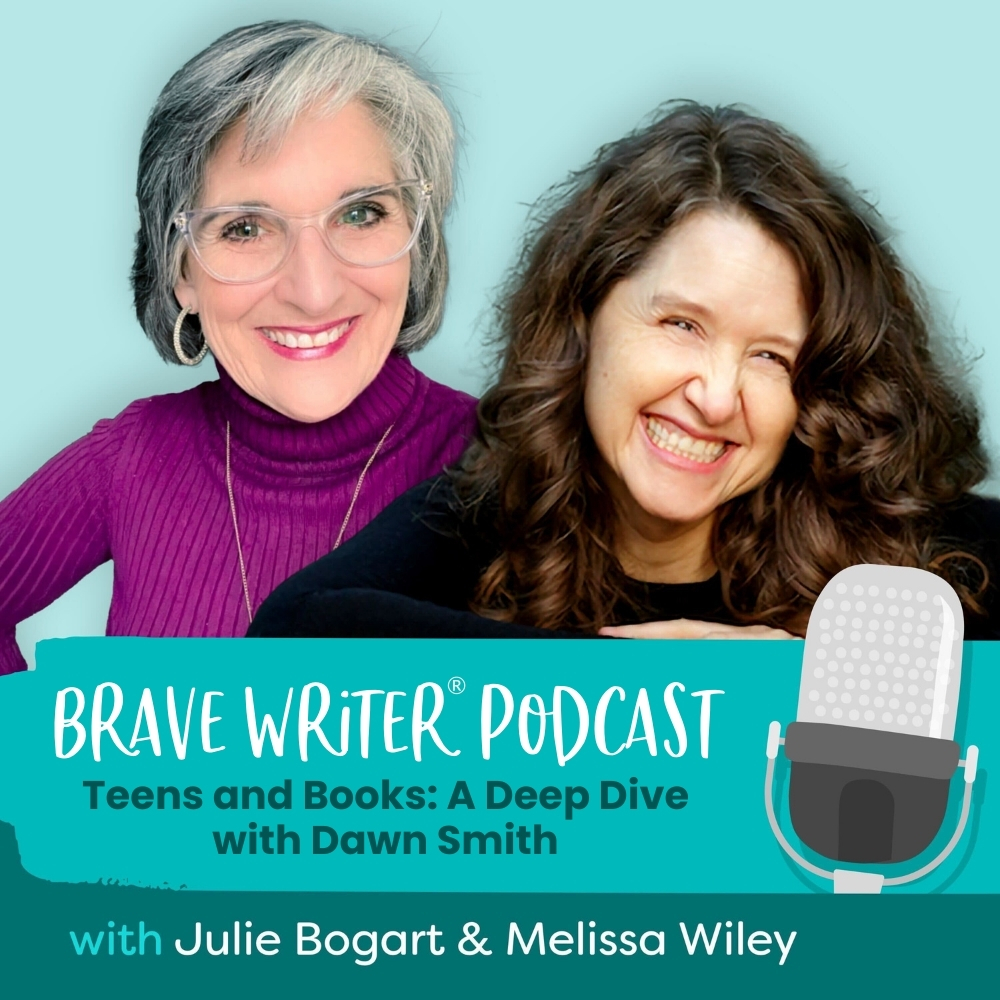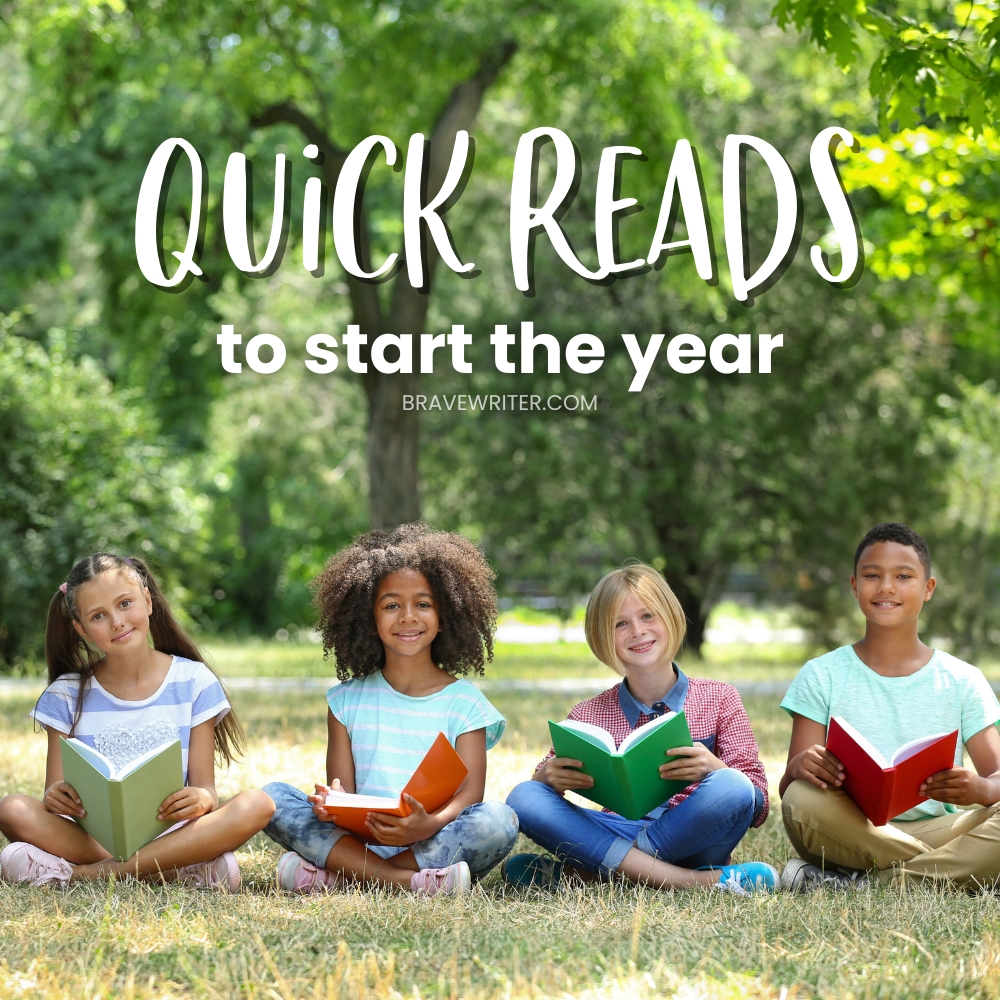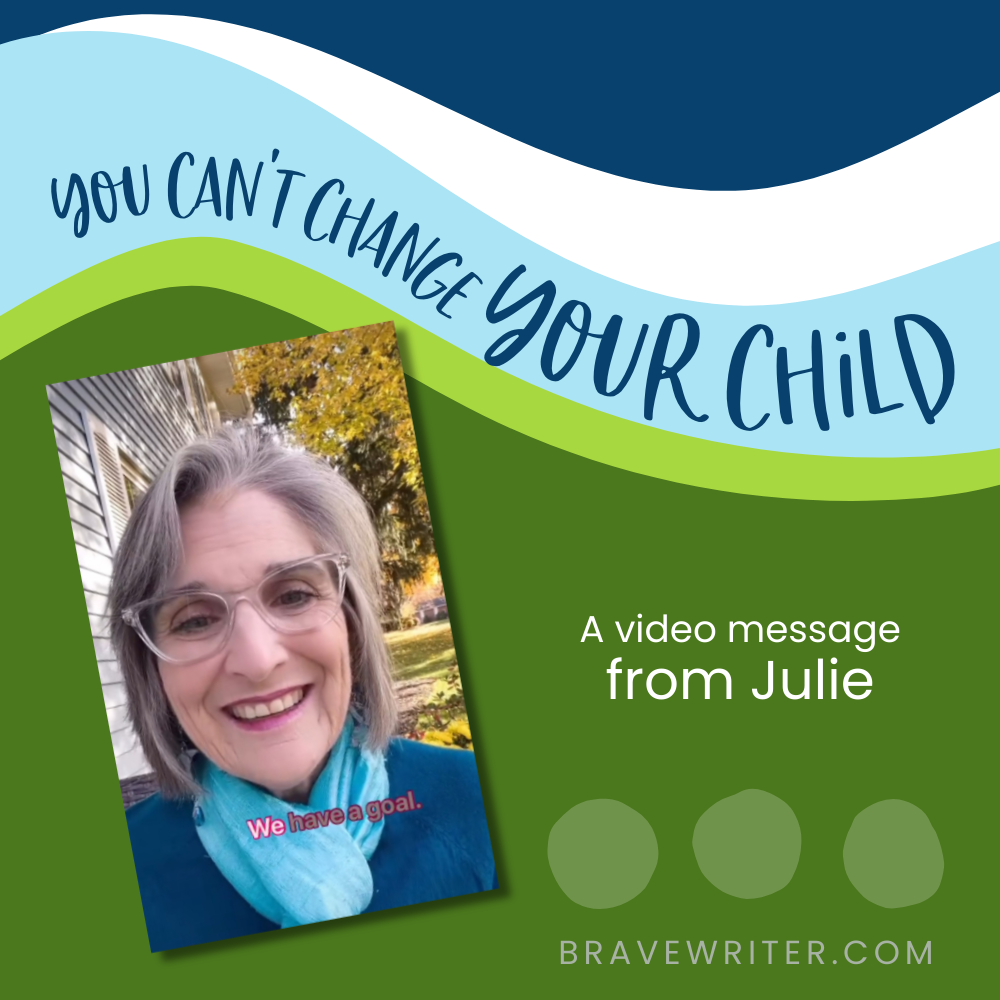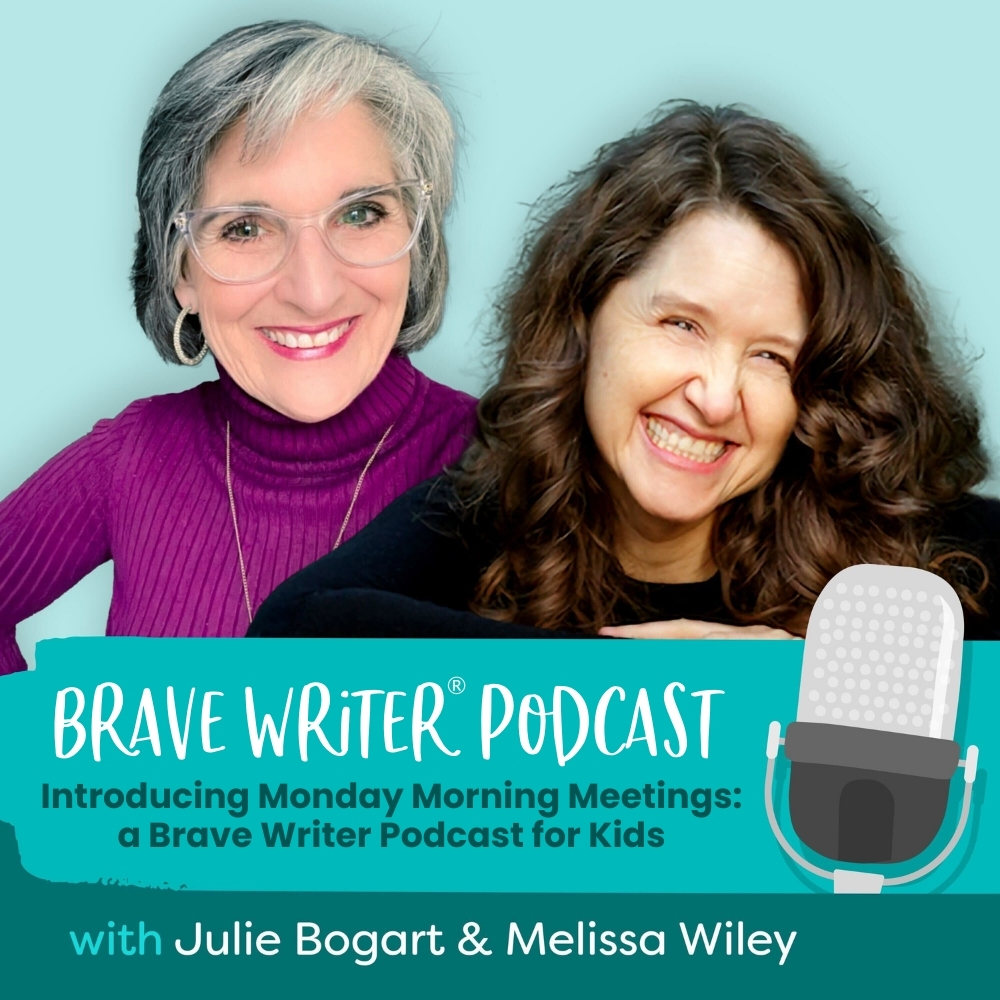
Do you ever wonder how to keep teens reading—joyfully, deeply, and on their own terms?
In this conversation with Brave Writer Director of Publishing Dawn Smith, we explore practical ways to sustain a teen’s love of books:
- continuing read-alouds,
- using buddy-reading systems with sticky-note annotations,
- deciding when a movie should come before (or after) the book,
- and leveraging picture books, audiobooks, and graphic adaptations as scaffolds into harder texts.
We also share a simple framework for building teen book lists—evaluating a single title, the mix across a year, and the overall “reading diet”—so families preserve joy while expanding range and rigor.
Show Notes
When we treat reading as shared culture rather than mere curriculum, teens build stamina for hard texts, confidence with analysis, and—most importantly—a positive association with books that lasts.
Keep Reading Aloud (Yes, Even to Teens)
Reading aloud isn’t just for early years. Teen ears benefit from tone, cadence, and vocabulary they might skip in silent reading. Try a hybrid: launch a classic with an audiobook or a few read-aloud chapters to establish rhythm and pronunciation, then hand the book off. As teens race ahead, let them summarize to you—an effortless way to practice narration and reveal what’s resonating.
Buddy Reading Makes It a Book Club
Instead of “assigning,” read alongside. Share a copy with color-coded sticky tabs or keep a traveling notebook for quotes, questions, and connections. Schedule a weekly chat (chapters 1–3 by Friday), and let teens bring the passage starters. Ownership rises when they get to say, “Let’s look at this scene together.”
Book First or Movie First? It Depends
Old “rules” fall apart when we consider real kids. For some, a film (or even a spoiler-filled recap) lowers stress and provides visual hooks so they can relax into the language of the book. Others relish building their own mental movie first. Either path can spark richer compare/contrast conversations about adaptation choices, medium constraints, and theme.
Picture Books and Graphic Texts Are Powerful Scaffolds
Picture books are compact masterclasses in structure, imagery, and sophisticated vocabulary—perfect for teens learning a new era, idea, or genre. Graphic adaptations (think epics and Shakespeare) create onramps to complex works without diluting ideas. “Windows and mirrors” apply here too: choose texts that both reflect your teen’s world and open onto others.
Curate with Three Lenses: Book, Year, and Diet
When selecting titles, ask: Why this book? What voice or community does it represent? Does the author speak from within that experience, and how do reviews from that community respond? Then zoom out: Across the year, do we have variety in genre, era, and perspective? Finally, over the whole high-school “reading diet,” are we preserving a love of reading while nudging range and rigor? Every “yes” to one long book is a “no” to three medium ones—choose intentionally.
Prioritize Joy to Power Rigor
When teens associate reading with delight and agency, they can draw on that goodwill to tackle denser academic texts later. Let them choose plenty; then support the stretches with scaffolds (audio, film, excerpts, discussion questions). Our goal isn’t to check every “canon” box—it’s to raise readers who keep reading.
Lean on Tools That Invite Discussion
Rich guides (like our teen literature studies) offer think-piece questions, writer’s-craft insights, and historical context so you don’t have to carry it all alone. Use them to seed conversation, frame comparisons, or jumpstart a paper topic—while keeping the tone invitational, not interrogational.
When we lead with companionship, flexibility, and purpose, teens don’t just finish books—they become readers for life.
Resources
- Find Jim Trelease’s The Read-Aloud Handbook in the Brave Writer Book Shop
- Check out our Boomerang and Slingshot guides for teens.
- Fall class registration is open!
- Visit Julie’s Substack to find her special podcast for kids (and a lot more!)
- Purchase Julie’s new book, Help! My Kid Hates Writing
- Join us at the Brave Learner Home: https://bravewriter.com/brave-learner-home
- Learn more about the Brave Writer Literature & Mechanics programs
- Start a free trial of CTCmath.com to try the math program that’s sure to grab and keep your child’s attention
- Give your child the gift of music! Sign up for a free month of private lessons with Maestro Music and let your child discover their own musical voice: www.maestromusic.online/brave
- Subscribe to Julie’s Substack newsletters, Brave Learning with Julie Bogart and Julie Off Topic, and Melissa’s Catalog of Enthusiasms
- Sign up for our Text Message Pod Ring to get podcast updates and more!
- Send us podcast topic ideas by texting us: +1 (833) 947-3684
Connect with Julie
- Instagram: @juliebravewriter
- Threads: @juliebravewriter
- Bluesky: @bravewriter.com
- Facebook: facebook.com/bravewriter
Connect with Melissa
- Website: melissawiley.com
- Substack: melissawiley.substack.com
- Instagram: @melissawileybooks
- Bluesky: @melissawiley.bsky.social
Produced by NOVA

























